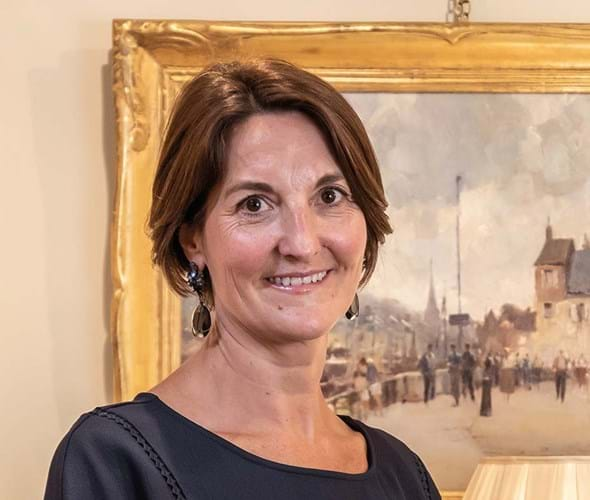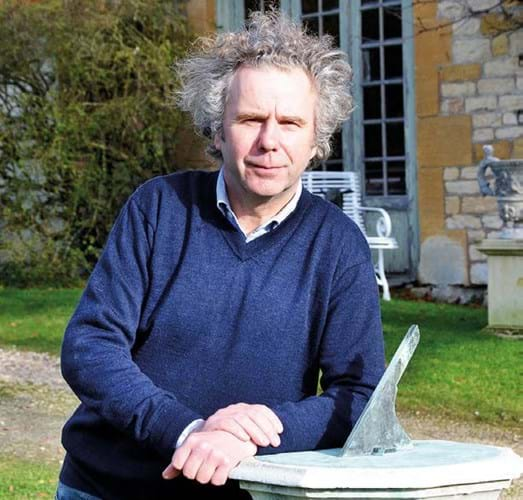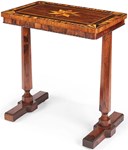What does 2021 have in store for the trade? ATG asks the heads of three trade associations – Freya Simms (chief executive of LAPADA), Christopher Battiscombe, (director general of SLAD) and Alex Puddy (chairman of CADA) – about their hopes and plans for the year, and the challenges that lie ahead. (For BADA, see ATG’s interview with new BADA chairman Louise Phillips in Dealers’ Diary in issue 2475.)
Challenges:
Simms: It is hard to predict trends for 2021 without reflecting on the necessary shifts the art and antiques market has gone through (and is continuing to go through) in the face of a pandemic. A market that was relatively slow to embrace the virtual world has now fully grasped the mantle and has tried a myriad of ways to attract interest through digital engagement.
Some are more successful than others, but I am certain that many dealers and businesses will continue to invest in their online offerings and produce hybrid versions of real and virtual initiatives.
The art market has proved itself to be resourceful and ingenious, quickly adapting business strategies to profit from, and I am confident that this trend will continue with dealers inviting us into their own spaces using content-rich storytelling that brings a human touch into the virtual world.
Battiscombe: Sadly, the main challenge for dealers over the coming year seems certain to be the implications of the Covid-19 crisis and in particular continuing doubts over when art fairs and normal international travel will be able to resume. TEFAF Maastricht has been postponed until May but it remains uncertain whether it will be able to take place and after that thoughts will turn to the prospects for Basel and Masterpiece in June and the Frieze fairs in the autumn.

Christopher Battiscombe, director general of SLAD.
Over 90% of SLAD members normally participate in at least one fair and for many, sales through fairs account for a substantial proportion of their income. It is vital therefore that the fair programme should resume as soon as possible. But just as important is the resumption of normal international travel, with overseas visitors coming here and dealers able to visit their customers and attend international fairs in other countries. And as the vaccine roll-out around the world gets under way, hopefully that will gradually come about.
Puddy: The challenge facing us all, in the first half of this year, is to see our society safely through to the other side of the pandemic.
On behalf of the members of the Cotswolds Art and Antiques Dealers’ Association (CADA) I wish to thank all those working tirelessly to save lives and keep us all safe.
The challenges that face our members and the trade in general are to a large extent those faced by all retailers in lockdown: how to reach clients, and in our case how to introduce art and antiques and, conversely, how to sell and deliver works safely.
Hopes and plans:
Simms: It has been encouraging to see that buyers are prepared to spend substantial sums on ‘sight unseen’ works of art, and I believe the recent trend of buying and selling locally rather than globally will continue well into 2021. At lapada.org we are seeing a surge in UK and European sales and a bit less American interest at present.
Brexit will, of course, have an impact on how dealers buy, sell and transport goods but I remain hopeful that the international art market is more connected and collaborative than the Brexit divide and will finds ways to innovate and trade productively.
Interior decorators are experiencing a welcome boom for the decorative arts as people seek to edit, improve and ‘zone’ parts of their homes that have become places of work, education as well as domesticity – think what an impact a beautiful desk, rug, picture or wall hanging could make. Another fashion for dealers to take advantage of is bringing inside out as we seek to make attractive safe spaces to socialise in.
Battiscombe: As well as the vaccine roll-out, the one other encouraging element in the current gloomy picture is the very impressive way in which dealers have adapted to the problems they face, by hugely increasing the amount of business they do online, through online auctions, putting their exhibitions online and negotiating individual sales online. And it does seem that despite the restrictions of lockdown, the appetite for buying art remains undimmed.
One very unfair consequence of the pandemic is that it has often hit the poor hardest, while in many cases the better off have actually become richer. But at least therein lies some hope, that some of that increased disposable income will be directed towards buying pictures!
Puddy: Our solution to spreading the messages is PR, expertly delivered through Gail McGuffie who works hard to cover all social and print media to drive business directly to our members, with all their diverse specialisations. This is using our website thecada.org and Instagram as touchstones to find CADA members both via their websites and on to safely visit their showrooms and make plans to enjoy the Cotswolds when Covid-19 restrictions ease.
Our hopes on the horizon for 2021 ride high on the roll-out of the vaccine(s) to allow us to showcase our dealers at our own art and antiques fair, scheduled to take place from October 14-17 within the splendid galleries of Compton Verney Art Gallery and Park in Warwickshire – an opening day I am very much looking forward to.















